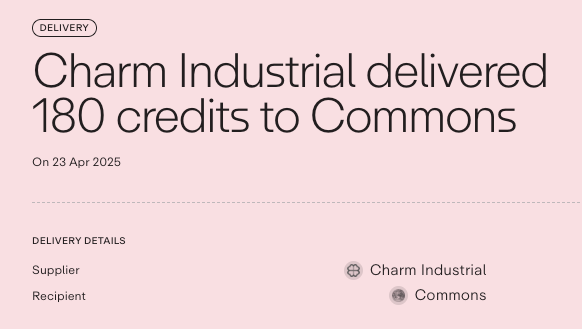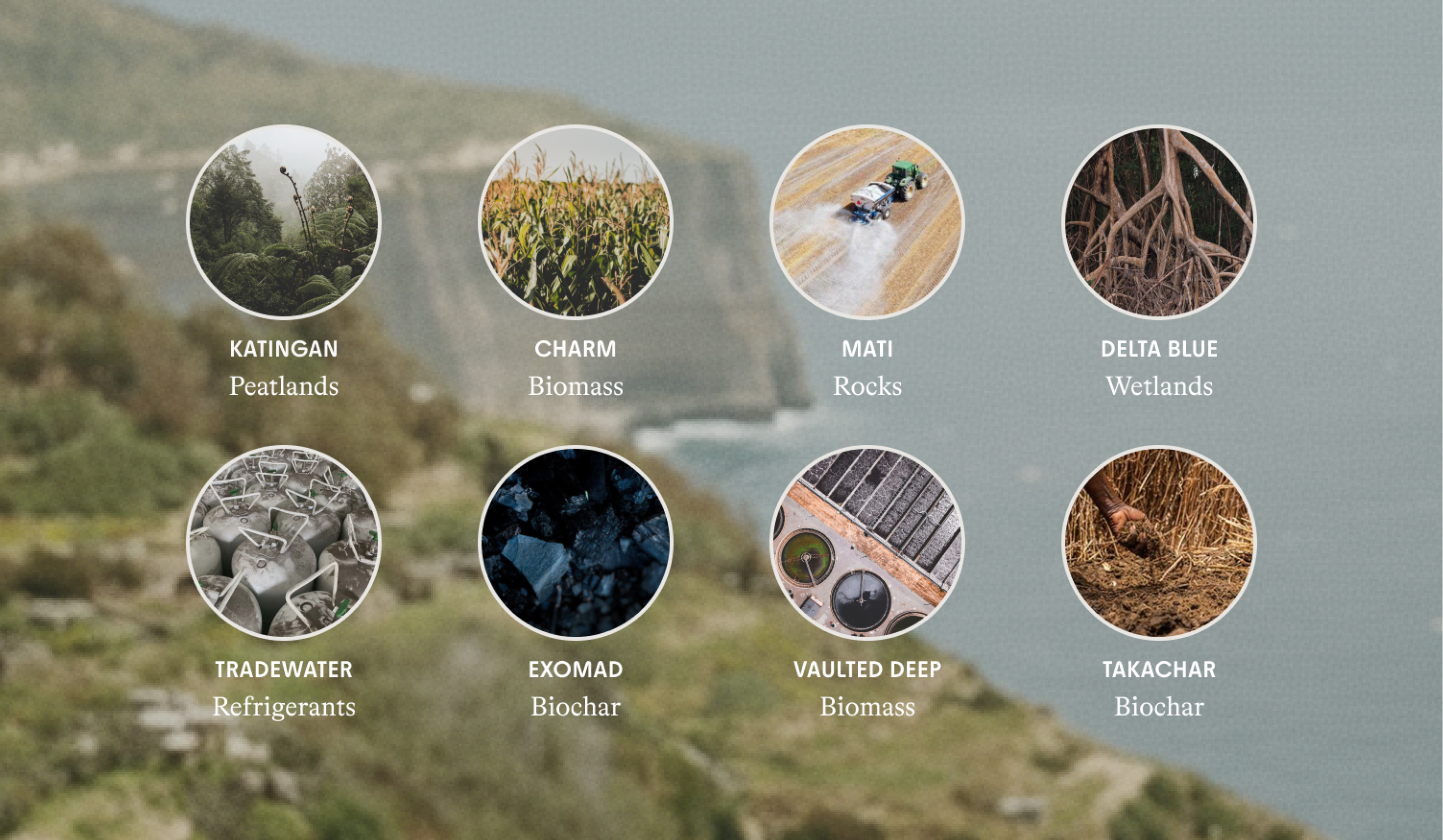Offset Portfolio Update: May 2025

Join the community





Commons users have the opportunity to offset their carbon emissions through the monthly Climate Steward Subscription, flight offsets, and one-time gifts. The community supports a diverse set of proven climate solutions through the Commons Offset Portfolio.
We're excited to announce that since April 2021, the Commons community has supported over 87,732 tons of carbon offsets.
Here are some updates on our portfolio from the past few months:

Project Spotlight: Charm Industrial
Charm Industrial injects carbon rich bio-oils into geological formations deep underground to store carbon for millennia.
Charm creates bio-oil from waste biomass through a process called “fast pyrolysis”. Bio-oil is a stable fluid that is high in carbon. Charm uses EPA disposal wells to pump the bio-oil deep underground, where it remains sequestered for thousands of years.
Commons began supporting Charm in 2020, and was one of its earliest buyers. Since then, Charm has consistently demonstrated its ability to deliver, scale, and experiment. In April, Charm delivered 180 Isometric-verified credits to the Commons community, which completes all purchases made through 2022.
Isometric is a leading carbon removal registry that is helping the industry move faster and with greater transparency. Instead of offtakes being verified and issued annually, Isometric verifies supplier credits every month. Moreover, their buyer-paid model mitigates conflicts of interest, reducing the potential for overcrediting.
Exciting updates from Charm:
- In January, Charm announced that it is co-producing biochar alongside its bio-oil. This unlocks highly efficient carbon removal by maximizing the carbon stored for each ton of biomass. Biochar also has an important benefit: putting carbon back into the soil. This improves nutrient availability, drought tolerance, and overall soil health.
- In conjunction, Charm announced a 100,000-ton offtake agreement with Google, fulfilled via Charm’s biochar. This marks the largest biochar agreement to date.
- In March, Charm won an award from the Association for Iron and Steel Technology for its research on carbon-negative ironmaking. Steelmaking accounts for nearly 8% of global carbon emissions, and Charm’s approach shows promise to lower its carbon intensity by replacing coal with its bio-oil syngas, a byproduct of its bio-oil production process.

Project Spotlight: Delta Blue Carbon
Marine ecosystems can store up to 5x more carbon than land-based forests. Climate nonprofit Project Drawdown estimates that coastal wetland protection and restoration efforts can store up to 2.6 gigatons more carbon emissions by 2050.
Delta Blue Carbon is a mangrove restoration project in the Sindh Province of Pakistan. It protects and restores 350,000 hectares of coastal wetlands in an area that has witnessed increased degradation over the past few decades.
The project is a collaboration between Indus Delta Capital — the world’s largest developer of blue carbon projects — and the local government of Sindh Province. The Commons community is supporting its efforts to re-plant mangroves in degraded areas, monitor erosion and poaching, and promote sustainable resource management. This is critical, as the project is located in a key biodiversity area home to threatened and endangered species.
One of the reasons we selected Delta Blue Carbon was for its impressive community consultation process, which has engaged over 40,000 people across 60 villages. The project has empowered participatory land use planning for hundreds of people and established local women’s organizations to increase women’s influence over project decision-making. The project has generated nearly 12,000 jobs to date and improved healthcare access for 23,000 people.
Exciting updates from Delta Blue Carbon:
- Introducing best-in-class biomass monitoring technology. In partnership with Inverto, Delta Blue Carbon is replacing traditional, manual monitoring methods with high-resolution biomass mapping using LiDAR, multispectral imaging, and more. Not only will this provide better data to track mangrove growth, but it will also advance blue carbon projects writ large, by establishing one of the most comprehensive datasets ever collected for a blue carbon project.
- Monitoring soil carbon. Starting in 2026, sample soil carbon in restored mangrove plots versus natural ones. This will isolate project-induced changes, and improve specificity in carbon removal calculations.
- Launching direct distributions. In partnership with the International Union for Conservation of Nature (IUCN), Delta Blue Carbon is beginning direct distributions of carbon finance to local communities. This builds on their existing employment and development initiatives, and ensures that revenue is meaningfully shared with local communities.
More Partners in the Commons Climate Portfolio
- Tradewater: Tradewater collects and destroys the world's most potent greenhouse gases.
- Pachama: Pachama verifies and monitors carbon offset projects using satellite imagery and machine learning.













